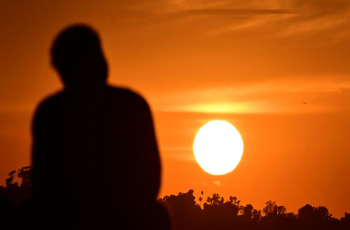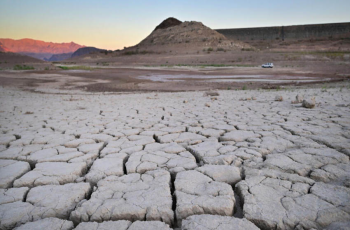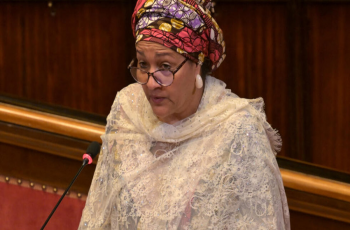Adaptation Projects May Worsen Vulnerability To Climate Change, Study Finds
Adaptation projects meant to reduce risk from climate change can sometimes create new sources of vulnerability in developing countries, finds a new study led by the University of Oxford and the Norwegian University of Life Sciences (NMBU).

Photo: TYT
Adaptation projects meant to reduce risk from climate change can sometimes create new sources of vulnerability in developing countries, finds a new study led by the University of Oxford and the Norwegian University of Life Sciences (NMBU). Unless adaptation is rethought, the findings show, new projects are likely to repeat the same patterns that worsen vulnerability to climate change.
The findings indicated that beyond unintended negative consequences, internationally-funded adaptation interventions risk becoming tools for marginalization and even tools for power abuse.
Despite good intentions and benefits to some groups, adaptation interventions examined often had negative consequences for already marginalized communities. The study identifies four key issues which are responsible for unintended negative consequences of climate change adaptation projects:
1. A shallow understanding of what drives vulnerability in specific locations, such as gender inequality, race relations or inequitable access to natural resources caused by systemic or historical drivers.
2. Not involving local people in design and implementation of projects.
3. Integrating adaptation into existing development projects without considering whether the development projects actually address the drivers of vulnerability to climate change in the first place.
4. Insufficient understanding in conceptual and practical terms of what “successful” adaptation looks like.
To overcome these challenges, and to ensure funding is actually helping marginalized people, it is crucial for the international funding community to engage more deeply with the drivers of local and global vulnerability such as poverty or unequal power dynamics, says Dr. Siri Eriksen, Professor of International Environment and Development Studies with NMBU.
“Simply calling for more climate finance is not helpful if projects are leading to elite capture of funds and ‘accumulation by adaptation’ making marginalized people even worse off in the face of climate change than they were before,” Eriksen says.
The paper, published today in World Development, examined 33 empirical studies documenting projects with evidence of maladaptation, to understand how and why this had happened. Twenty critical adaptation scholars around the world contributed to the collection and analysis of cases.
It points to the importance of learning from the critiques directed at development aid over the past decade, including the need to explicitly tackle issues of colonialism and marginalization.
-

Moldovan youth is more than ready to join the EU
2024-04-18 -

UN says solutions exist to rapidly ease debt burden of poor nations
2024-04-18 -

'Human-induced' climate change behind deadly Sahel heatwave: study
2024-04-18 -

Climate impacts set to cut 2050 global GDP by nearly a fifth
2024-04-18 -

US sterilizations spiked after national right to abortion overturned: study
2024-04-13 -

Future of Africa's flamingos threatened by rising lakes: study
2024-04-13 -

Corporate climate pledge weakened by carbon offsets move
2024-04-11 -

Humanity lost 'moral compass' on Gaza: top UN official
2024-04-10 -

No.1 Scheffler says patience and trust are secrets to success
2024-04-10 -

From homeless addict to city chief: the unusual journey of Canadian mayor
2024-04-10
